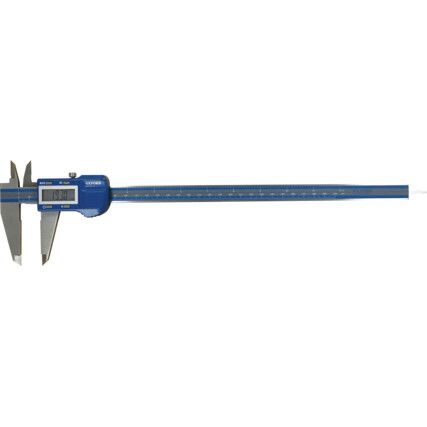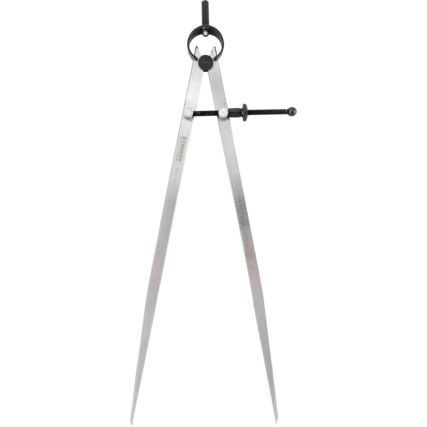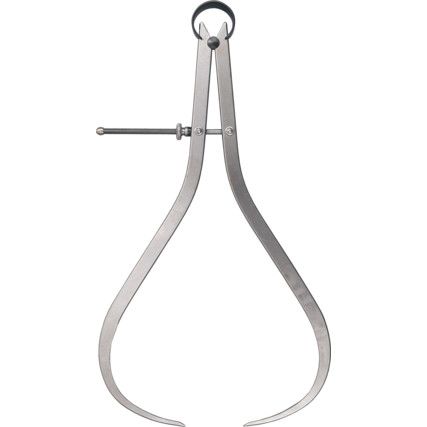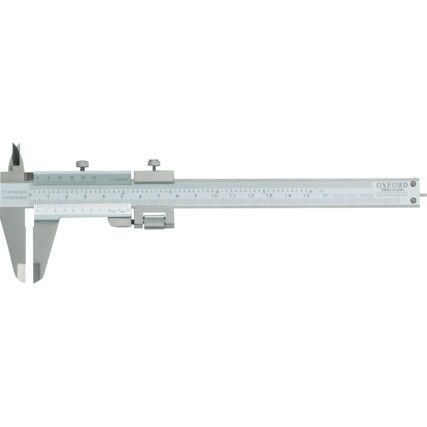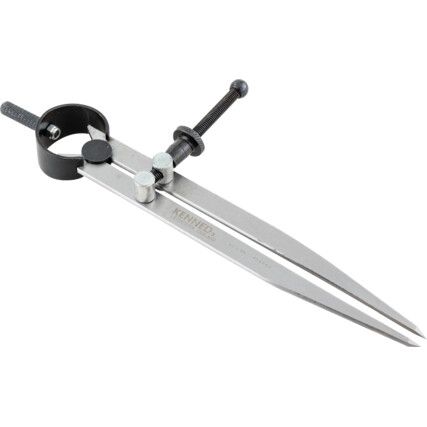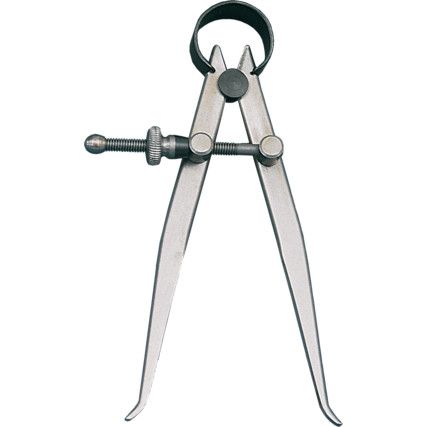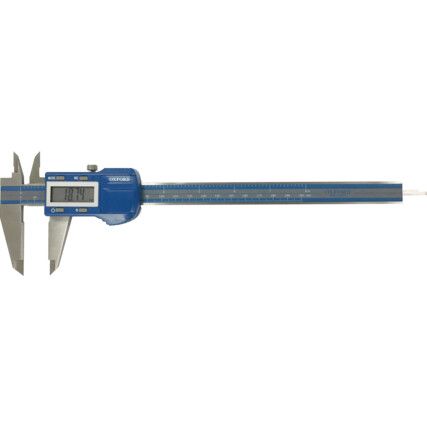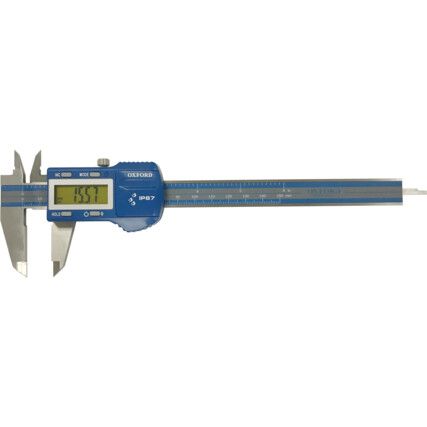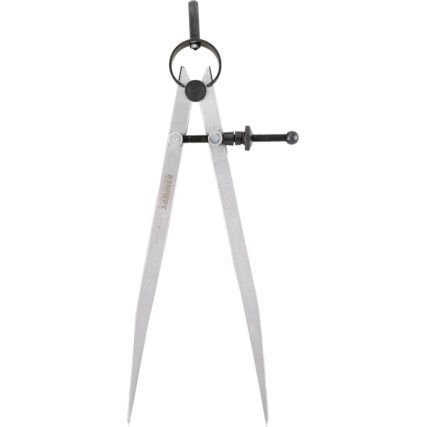Calipers
Used for precision measuring tasks, calipers allow for quick and accurate measurements of length, depth and step on both the inside and outside of an object. Digital calipers feature an easy to read and operate LCD screen and two caliper jaws for inside and outside measurements respectively. Dial calipers feature a dial instead of a digital display. Like vernier calipers, they feature a main scale with an attached depth rod, while a thumb screw allows for quick and accurate adjustments. A convenient locking screw holds the jaws in place to log measurements. At Cromwell you can find an excellent choice of calipers from reliable brands, like Mitutoyo® and Oxford®.
What are calipers?
For precise measurements, calipers deliver distance measurements with extreme accuracy. Measurements are displayed on either a dial or an LCD screen, while minute adjustments can be made using a thumbwheel attached to the display body.
Why calipers?
Calipers are extremely accurate and convenient. They allow for quick measurements to be taken thanks to the dial or digital display, and these measurements can be converted at the touch of a button (in the case of digital units) to both metric or imperial. They're ideal for comparative measurements, with the digital or dial display allowing for the difference between two objects to be displayed as well as overall measurements.
When are calipers used?
Used in a wide range of industries, calipers are a popular piece of equipment in medicine, engineering, woodworking, and any industry where accurate measurements are required. Used to measure the inside and outside of an object, as well as the depth and step measurements, calipers are ideal for precision tasks.
Caliper types
• Dial caliper - At the pricier end of the spectrum, delivers absolute readings on the dial display.
• Digital caliper - Extremely accurate and easy to read.
• Vernier caliper - Manually operated with excellent shock resistance, doesn't feature an LCD display.
Considerations when choosing calipers
• Environment - Ensure you purchase digital calipers in line with the setting in which they'll be used. Some calipers are designed with water-proofing features, and others are not.
• Accuracy - For precise tasks a digital model is the best choice. The highest resolutions range between 0.005mm-0.001mm for professionals looking for extreme accuracy.
• Measurement range - Removable so the end user can customise.
• Cost - Dial and digital calipers are more expensive that the other kinds shown here, however they're understandably not a shock resistant as other verniers.
Caliper jargon buster
We want to make it easy for you, so here are some key terms that will help you understand the range and applications a little better.
What does my caliper's IP certification mean?
The same as the ratings assigned to mobile phones and other wearable digital equipment, an IP rating highlights a mechanical casing's resistance to water and dust. This rating is published in the EU under EN 60529.
Let's break it down...
IP - An acronym for Ingress Protection, sometimes known as International Protection, and is the name of the standard enforced by the IEC (International Electrotechnical Commission).
The first number in the IP rating relates to solid particle protection.
• 0 - No protection.
• 1 - Protects against any object >50 mm.
• 2 - Protects against objects >12.5 mm.
• 3 - Protects against objects sized >2.5 mm such as tools and thick wires.
• 4 - Protects against objects >1 mm such as wires and screws etc.
• 5 - Protects against dust although not dust tight, offers complete protection against contact.
• 6 - This first digit records the designated resistance to potentially harmful dust or dirt when exposed to the material for up to eight hours.
The second number relates to liquid ingress protection.
• 0 - No protection.
• 1 - Unit protected from vertically falling dripping water for a duration of up to ten minutes.
• 2 - Vertically dripping water equivalent to 3mm of rainfall does not cause harm when tilted to up to 15° from normal position, for a duration of up to ten minutes.
• 3 - Spray falling at a 60° angle has no harmful effect, with a water volume of 0.7 litres per minute and a pressure of 80-100 kPa, for a duration of 5 minutes.
• 4 - Water splash has no harmful effect for a duration of 5 minutes providing the volume is up to 10 litres per minute with 80-100 kPa of pressure.
• 5 - Water projected by nozzle up to 6.3 mm from a distance of 3m has no harmful effects, for up to 3 minutes providing the volume is up to 12.5 litres per minute and the pressure does not exceed 30 kPa.
• 6 - Jets of water up by a 12.5 mm nozzle does not cause harm for up to 3 minutes with a volume of up to 100 litres per minute and a pressure of up to 100 kPa at distance of 3 m.
• 7 - This digit shows the water resistance rating where the calipers remain operational when submerged in up to 1m of water for up to half an hour.
• 8 - Unit can be submerged beyond 1m continuously with no harm caused.
FAQs
Are digital calipers accurate?
Yes, these precision instruments are designed to take highly accurate measurements to within 0.01mm. They feature automatic conversion between standard and metric measurements, which avoids errors made in manual conversions.
What sized battery do digital calipers use?
As a small piece of equipment, digital calipers use a button battery type, usually a LR44 or SR44 size, these 1.5-volt batteries are widely available.
What's the difference between a vernier caliper and a digital caliper?
The most significant difference between these types of caliper is that vernier calipers are manual and feature no digital display, while digital calipers have an LCD display which projects accurate measurements. Measurements on vernier calipers are read directly from the increments on the body of the tool, and they're a cheaper alternative to digital calipers.
Are all digital calipers the same?
All calipers are extremely accurate to within 0.01mm, which, for most applications is extremely precise. However, if you need higher precision measurements, then there are digital calipers available that feature a higher resolution for increased accuracy.

